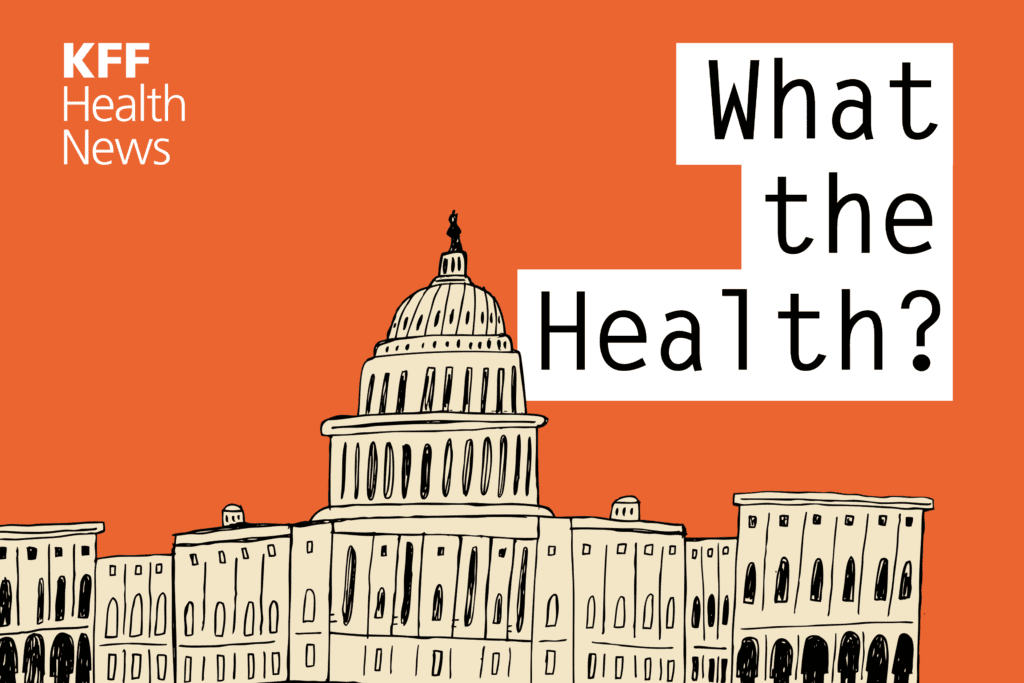KFF Health News' 'What the Health?': Anti-Abortion Hard-Liners Speak Up

The Host
With abortion shaping up as a key issue for the November elections, the movement that united to overturn Roe v. Wade is divided over going further, faster — including by punishing those who have abortions and banning contraception or IVF. Politicians who oppose abortion are already experiencing backlash in some states.
Meanwhile, bad actors are bilking the health system in various new ways, from switching people’s insurance plans without their consent to pocket additional commissions, to hacking the records of major health systems and demanding millions of dollars in ransom.
This week’s panelists are Julie Rovner of KFF Health News, Alice Miranda Ollstein of Politico, Rachel Roubein of The Washington Post, and Joanne Kenen of the Johns Hopkins schools of public health and nursing and Politico Magazine.
Among the takeaways from this week’s episode:
It appears that abortion opponents are learning it’s a lot easier to agree on what you’re against than for. Now that the constitutional right to an abortion has been overturned, political leaders are contending with vocal groups that want to push further — such as by banning access to IVF or contraception.
A Louisiana bill designating abortion pills as controlled substances targets people in the state, where abortion is banned, who are finding ways to get the drug. And abortion providers in Kansas are suing over a new law that requires patients to report their reasons for having an abortion. Such state laws have a cumulative chilling effect on abortion access.
Some Republican lawmakers seem to be trying to dodge voter dissatisfaction with abortion restrictions in this election year. Sen. Ted Cruz of Texas and Sen. Katie Britt of Alabama introduced legislation to protect IVF by pulling Medicaid funding from states that ban the fertility procedure — but it has holes. And Gov. Larry Hogan of Maryland declared he is pro-choice, even though he mostly dodged the issue during his eight years as governor.
Former President Donald Trump is in the news again for comments that seemed to leave the door open to restrictions on contraception — which may be the case, though he is known to make such vague policy suggestions. Trump’s policies as president did restrict access to contraception, and his allies have proposed going further.
Also this week, Rovner interviews Shefali Luthra of The 19th about her new book on abortion in post-Roe America, “Undue Burden.”
Email Sign-Up
Plus, for “extra credit,” the panelists suggest health policy stories they read this week that they think you should read, too:
Julie Rovner: The 19th’s “What Happens to Clinics After a State Bans Abortion? They Fight To Survive,” by Shefali Luthra and Chabeli Carrazana.
Alice Miranda Ollstein: Stat’s “How Doctors Are Pressuring Sickle Cell Patients Into Unwanted Sterilizations,” by Eric Boodman.
Rachel Roubein: The Washington Post’s “What Science Tells Us About Biden, Trump and Evaluating an Aging Brain,” by Joel Achenbach and Mark Johnson.
Joanne Kenen: ProPublica’s “Toxic Gaslighting: How 3M Executives Convinced a Scientist the Forever Chemicals She Found in Human Blood Were Safe,” by Sharon Lerner; and The Guardian’s “Microplastics Found in Every Human Testicle in Study,” by Damian Carrington.
Also mentioned on this week’s podcast:
To hear all our podcasts, click here.
And subscribe to KFF Health News’ “What the Health?” on Spotify, Apple Podcasts, Pocket Casts, or wherever you listen to podcasts.
Related Topics
Contact Us
Submit a Story Tip




